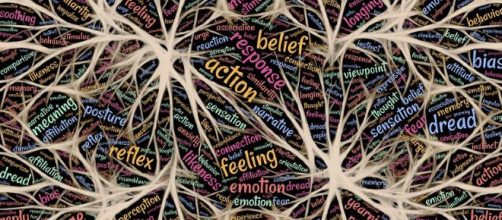For as long as I could remember, I wanted to be a writer. I also wanted to be a hockey player, and an artist, and to speak five languages. I also wanted to be a teacher and a fitness instructor. I wanted to try many new things. I always had goals, I just didn't know how to act on them. Sounds crazy right?
The thing is, when I was in high school I still believed I could reach all of these goals, not realizing that to achieve them, I would have to spend a vast amount of time working in those areas. I was already in athletics, hanging out with friends, or watching my favorite professional teams at home, so there was not much of a need for a spark in my life.
By the time I got to high school, reality hadn't sunk in yet, but I had minimized my list of what-I-wanted-to-be to about four. My goals were slowly molding from unattainable to humanly possible.
Reality started to hit pretty hard when I began college. It wasn't all fun anymore and I began to experience long periods of boredom. After all, my friends from high school were all working. In college, I did not get a job until my second year.
Set goals
In my last year in college, I started to put things together about how important goals were. I could see the light at the end of the tunnel. I was only a year away from booking my ticket to cross the graduation stage. My life was going to change. But I did not want to go that long again without accomplishing something.
I was still going to the gym on a regular basis, but it was only to maintain my lean figure (or skinny at the time). Then I thought about something that I could measure. How about instead of benching 165 lbs. all the time, bench 175 lbs with a deadline of three weeks? And so I proceeded to search the internet for a fitness plan to build to my goal of benching 175 lbs.
Then, I started to write four pages a day about anything. Talk about changing your life. Setting goals keeps you alive and feeds you with a powerful energy. You can still do the same things that you are doing, but you can enhance those areas of your routine. Oh, the power of improvement!
Try new things
When I was 19-years-old, I joined a recreational ice hockey team.
Hockey was not new for me, but playing hockey on the ice was new. At this time I did not even realize I was breaking my routine. From 10 to 12-years-old I played in an inline hockey league. I knew how to ice skate, but I did not know how to stop on ice. Throw in a hockey stick, helmet, shoulder pads, etc., and you have a recipe for disaster.
So I began with ice skating, practicing how to stop, and falling down a thousand times in the process. There were three things that I had not thought about when I started: Number one, I had a lot to learn about skating, number two, I had a lot to learn about playing the game, and number three, there were going to be players that had played ice hockey since they were four years old.
Hockey was their life. Their goal.
My routine was college, job, then hanging out with friends. Again, there was nothing wrong with this. You need to spend time with friends, but I needed a challenge. In the coming years that I played, not only did I improve, but I met more people. I participated in tournaments, even traveling to Montreal, Canada to play.
But my biggest leap had to be moving to China, where I really stretched myself as a person. Enhancing my skills as a teacher and learning Mandarin was my goal. This was the first time I had lived by myself in another country where I didn't know the language. I am living in China as I write this article. It was the best decision of my life, and all it took was a leap of faith.
I have lived in China for two years and it has been quite an adventure. Meeting people from different countries, discovering a new way of life, trying different foods, and visiting other countries is definitely a life-changing experience.
Routine is good, but it can create dull spots in your life. Setting goals and trying new things, as scary as they can be, can contribute to your life's greatest accomplishments. Pushing yourself to different limits and entering the unfamiliar will, at first, present obstacles that test your resilience. Nevertheless, your ability to cope with these situations and overcome adversity is where the real growth sets in. You will fail sometimes, but that doesn't have to define you.


